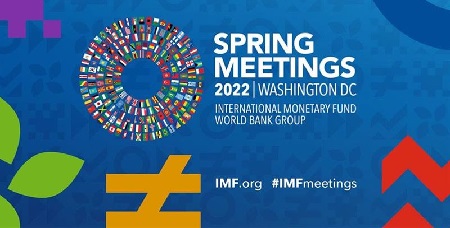The World Bank Drives Billions into Fossil Fuel Investments
The 2022 Spring Meetings of the International Monetary Fund (IMF) and the World Bank Group (WBG) will take place from Monday, April 18, through Sunday, April 24. Most of the events, including the public events, invitation-only events, civil society organization engagements, and press conferences, will be virtual. Even the following week meetings will take place.
The burning of fossil fuels is the biggest contributor to the climate crisis. Yet, the World Bank is still using its public funding to drive billions and billions into fossil fuel investments, including coal. Since the Paris Agreement, the World Bank has provided $12 billion in direct project finance to fossil fuels, more than any other multilateral development bank. The figure does not include billions more in support to fossil fuels through policy based lending and financial intermediaries. Urgewald`s latest case studies are Suriname (oil) and Pakistan (coal).
Another important issue with regard to the war on Ukraine: the World Bank Group`s finance involving Russia and Belarus. Together with CEE Banktrack and Ukrainian NGO Ecoaction we sent a letter to WB Executive Directors, urging them to stop equity investments, trade finance and guarantees involving entities linked to Russia and Belarus.
Around the world, climate change is intensifying the destruction and human suffering caused by severe weather events, including, inter alia: flooding, hurricanes, drought, heat waves and forest fires.
UNICEF reports that a billion children worldwide are vulnerable to the effects of climate change. The World Bank states that without urgent action, climate change will push more than 100 million people into poverty by 2030.
The burning of fossil fuels is the biggest contributor to the climate crisis. No fossil fuel investments are needed to provide energy access to the poor because existing renewable energy technologies are already the best option. As such, the UN Sustainable Energy for All initiative states that “financing of fossil fuel projects as a means of closing the energy access gap should be terminated.”
There are no more excuses, no public assistance should be used to boost or prop up the development of fossil fuels. Yet the World Bank is still using its public funding to drive billions and billions into fossil fuel investments, including coal.
Since the Paris Climate Agreement (2016-2020), the World Bank has provided:
- $12 billion in direct project finance for fossil fuels in over 35 countries (see Table 1);
- $10-$20 billion annually given as government budget support – representing a huge fossil fuel loophole as the World Bank does not restrict spending on fossil fuels, including coal expansion. From 2016 to 2019, 81 countries received budget support;
- Billions more in fossil fuel-enabling infrastructure, such as transmission lines to evacuate power from new coal-fired plants (examples include: in India, Indonesia, and Pakistan mega coal power projects would not have gone forward without the World Bank-funded transmission lines);
- Fossil-friendly policy reforms in at least 18 countries that increased fossil fuel profits – driving billions into new fossil fuel investments (see Table 2), examples include, inter alia: tax breaks for coal and gas in Mozambique; tax breaks favoring oil and coal in Colombia; and higher electricity tariffs resulting in higher profits for new coal-fired plants in Pakistan;
- Technical assistance in over a dozen countries aimed at increasing fossil fuel investments (see Table 3). Yesterday’s technical assistance is today’s mega fossil fuel project, examples include, inter alia: Pakistan’s Thar lignite coal fields – the largest in Asia; Mozambique’s coal and liquified natural gas (LNG) blocks; and Brazil’s pre-salt offshore oil fields.
In order to be in alignment with the Paris Climate Agreement goals, the World Bank must get out of all fossil fuels now, including:
- Stop financing all fossil fuel projects (coal, oil and gas) and enabling infrastructure, including through financial intermediaries (i.e., on-lending through banks and equity funds).
- Stop allowing billions in budget support to be used for fossil fuel expansion.
- Stop fossil-friendly policy reforms, including tax breaks and increasing tariffs to cover higher profit margins and capacity payments for new fossil fuel power plants.
- Stop all technical assistance for fossil fuel expansion, including geodata, transaction advisory, and policy formation.
- Donor governments should not consider a World Bank-suggested capital increase for climate finance until the World Bank ends all fossil fuel assistance. Redirect the tens of billions in fossil fuel assistance to climate finance first.
Table 1. World Bank Group Fossil Fuel Finance since Paris Climate Agreement1
Table 2. Policy Reforms of World Bank Development Policy Finance 2016-2019
Table 3. Examples of World Bank Fossil Fuel Technical Assistance (active 2013-2025)
Contact:
Heike Mainhardt
Senior Adviser für Kampagnen zu multilateralen Finanzinstitutionen
heike.mainhardt@urgewald.org














